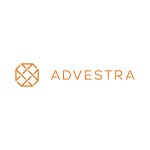Although Switzerland does not have a leading role in ESG legislation like the EU, it nevertheless recently enacted several new provisions aiming to catch up with EU legislation in different areas of ESG.
Some of the new reporting and due diligence obligations that Swiss enterprises face or will face will be discussed in this article, including:
Non-financial reporting obligations for certain larger Swiss listed enterprises and prudentially supervised large financial enterprises;
Due diligence obligations regarding child labour and conflict minerals; and
Transparency obligations for commodity enterprises.
The summaries below present the duties on a high level and do not purport to be complete.
Non-financial reporting obligations
Introduction
The Swiss non-financial reporting obligations are originally part of an indirect counterproposal to a Swiss popular initiative, the so-called ‘Responsible Business Initiative’.
This initiative would have introduced not only new reporting and due diligence obligations but would have introduced new liability for subject enterprises. Specifically, the subject enterprises would have been held liable for damages occurred outside Switzerland caused by its controlled enterprises in violation of internationally recognised human rights or international environmental standards, unless the subject enterprise could have proven that it took all due care to avoid the loss or damage, or that the damage would have occurred even if all due care had been taken.
With the Responsible Business Initiative rejected, the indirect counterproposal moved forward and became law on January 1 2022 by an amendment of the Swiss Code of Obligations. Subject enterprises must produce a report on non-financial matters for the first time in 2024 regarding the financial year beginning in 2023.
Subject companies
The new non-financial reporting obligations target larger companies. Prudentially supervised large financial institutions as well as larger listed enterprises domiciled in Switzerland are the subjects of this new legislation. Only larger Swiss listed companies with at least 500 full-time employees (FTE) per year in two consecutive years and with a balance sheet total of at least CHF20 million or a turnover of at least CHF40 million (in each case calculated on a consolidated basis) must produce a report on non-financial matters.
Hence, smaller companies, even if they are listed, do not face this burden, although in practice, quite a number of companies already produce similar reports on a voluntary basis as this is perceived as good corporate governance by some investors. Exempted from this obligation are enterprises, which are controlled by another company, which is itself a subject enterprise or which is required to produce a similar report under foreign law. The latter tries to eliminate any duplications which would be without added value.
Content
The report on non-financial matters must comprise information about environmental matters, in particular about CO2 targets, social and employment matters, respect of human rights and combat against corruption. The report must outline those details, which are required for the understanding of the business performance and result as well as the situation of the enterprise and the impact of its actions on these matters.
The Swiss Code of Obligations provides a non-exhaustive list of matters, which are to be covered by the report. Among others, it requires a description of the business model, a description of the concepts pursued in respect of the above-mentioned matters, the measures taken and their effectiveness. Further, subject enterprises must describe the main risks in connection with its business and, to the extent, relevant and proportionate, the risks in its supply chain as well as performance indicators in respect of the above-mentioned matters.
Subject enterprises may follow international recognised reporting standards, such as the guidelines of the OECD provided that they indicate the applied reporting standards and supplement the report if the report does not cover all line items required by Swiss law.
The board of directors has to approve and sign the report and get the approval by the general meeting of shareholders. It must further ensure that the report will be published electronically after its approval and remain accessible for a period of 10 years.
Non-compliance
Persons, who fail to produce a report, intentionally disclose incorrect information or do not comply with the documentary obligations, face a fine of up to CHF100,000. The maximum amount of the possible fine is reduced to CHF50,000 if the person acts unintentionally.
Due diligence obligations regarding child labour and conflict minerals
Introduction
As the non-financial obligations, the due diligence obligations regarding child labour and conflict minerals originate from the indirect counterproposal discussed above and came into force at the beginning of 2022 with a transition period of one year.
In contrast to the non-financial reporting obligations, the due diligence obligations are further clarified in an ordinance (the Ordinance). As the Ordinance was promulgated by the Swiss Federal Council, it will be easier to adapt should it be required as it does not have to pass a legislative procedure for an amendment.
Subject companies
While the non-financial reporting obligations focus on larger listed companies, the due diligence reporting obligations regarding child labour and conflict minerals have a broader application: In principle, they are applicable to all natural and legal persons as well as business partnerships, whose registered office, central administration (Hauptverwaltung) or principal place of business (Hauptniederlassung) in Switzerland and which carry on a trade.
Both prongs, the obligations regarding child labour and the obligations regarding conflict minerals, provide for exemptions as shown below.
Child labour
For child labour, the law includes certain thresholds to exclude SME. These are enterprises, which fall below two of the following three thresholds: A balance sheet total of CHF20 million, sales revenues of CHF40 million or 250 FTE.
|
|
“Although Switzerland does not have a leading role in ESG legislation like the EU, it nevertheless recently enacted several new provisions aiming to catch up with EU legislation in different areas of ESG” |
|
|
If an enterprise reaches or crosses more than one of these thresholds, it may still be exempted if it is an enterprise with low risks. This is the case if the products, which an enterprise acquires or produces, or if the services, which an enterprise primarily uses or performs, are from countries whose due diligence response is qualified as ‘basic’ according to the UNICEF Children’s Rights in the Workplace Index.
If an enterprise qualifies for an exemption, it must document this conclusion in its company records. If an enterprise does not fall below the relevant thresholds and is not classified as low risk, it may still benefit from an exemption if it comes to the conclusion that it does not identify a justified suspicion regarding child labour for a product or a service.
The enterprise must document this conclusion, which must be substantiated. If an enterprise offers products or services, which are patently obviously made with the involvement of child labour, the above tests are not applicable, and the enterprise is subject to the due diligence and reporting obligations.
Conflict minerals
For conflict minerals, the exemptions available differ from those available for child labour. In order to be subject to the regulation, an enterprise must import, or process conflict minerals above certain thresholds as further specified in Annex 1 of the Ordinance. Conflict minerals include tin, tantalum, tungsten and gold minerals and are defined in the annex 1 to the Ordinance.
If an enterprise crosses the relevant thresholds, it must assess in a next step whether or not the minerals originate from high-risk areas. If the minerals or metals are not from a conflict or high-risk area, the enterprise must document this conclusion and is exempted from the due diligence and reporting duties.
In order to be able to verify whether metals or minerals are from conflict or high-risk areas, an enterprise may be obliged to trace its supply chain.
Child labour and conflict minerals
For child labour and conflict minerals, the statute provides for an exemption of the due diligence obligations if a subject enterprise already complies with international recognised standards.
For child labour the Ordinance requires in its annex 2 compliance with (i) the ILO Conventions no. 138 and 182 and (ii) the ILO-IOE Child Labour Guidance Tool for Business and (iii) the OECD Due Diligence Guidance for Responsible Business Conduct or the UN Guiding Principles on Business and Human Rights.
For conflict minerals, enterprises may choose between the OECD Guidelines for Conflict Minerals and the EU Regulation (EU) 2017/821.
Content
A subject enterprise must undertake to fulfill the obligations on a best-efforts basis. The due diligence assessment is risk-based, i.e., the greater the risk is, the more investigation is required, and the risks may be prioritised accordingly.
Subject enterprises face numerous obligations, such as:
Supply chain policy: A subject enterprise must establish a supply chain policy regarding minerals and metals or regarding child labour (as applicable). For this purpose, the subject enterprise must also inform its suppliers and public about its policy. The supply chain policy must be based on the standards listed in annex 2 of the Ordinance (see above).
System of traceability: In addition, a subject enterprise is required to establish a system to trace and document the supply chain.
Reporting procedure: A subject enterprise must offer a reporting procedure for the notification of potential adverse effects in connection with minerals or metals from high-risk areas or child labour, which must be accessible to all interested parties.
Risk management: Subject enterprises are tasked to produce a risk management plan, in which the risks of a supply chain, their probability and their severity of adverse effects are assessed based on the standards listed in annex 2 of the Ordinance. In case of minerals and metals, auditors (auditors who are admitted as audit experts in the sense of the Swiss Audit Oversight Act) will have to provide a negative assurance about the compliance of the management system and the evaluation of the risks in a supply chain in a report to the highest management body (in case of a corporation, the board of directors).
Subject enterprises are exempted from the duty to establish a reporting procedure, a risk management plan and the report by the auditors if they prove that they import or process recycled metals. The exemption applies only to these duties and the other duties, such as a supply chain policy, remain in place.
Non-compliance
Similar as for failures in case of non-financial reporting obligations, Swiss law provides fines of up to CHF100,000 if a person intentionally omits to produce a report or provides incorrect information in a report to be produced in connection with the due diligence obligations. For unintentional acts or omissions, the maximum fine is lowered to CHF50,000.
Transparency obligations for commodities enterprises
Introduction
The provisions about transparency obligations for commodities enterprises already found their way into the Swiss Code of Obligations at the beginning of 2021. With a transition period of one year, subject enterprises must be compliant since 1 January 2022.
Subject companies
Swiss law narrows the scope of application to those commodities enterprises which are subject to an ordinary audit by Swiss law. These enterprises include companies (i) having equity securities listed on a stock exchange, (ii) having outstanding bonds or (iii) contributing at least 20% of the assets or the turnover to the consolidated balance sheet of a company according to (i) or (ii) as well as larger companies (i.e., companies, which cross two of the following thresholds (a) balance sheet total of CHF20 million, (b) turnover of CHF40 million, 250 FTE per year). If a company is a group company of a parent company, which already produce a similar report under foreign law, the group company is exempted from the obligations. Commodities enterprises are enterprises, which or whose subsidiaries are active in the area of the extraction of minerals, oil or natural gas or in the harvesting of timber in primary forests.
Content
Subject enterprises must produce a report on payments made by themselves or companies controlled by them to governmental agencies involving the extraction of minerals, oil or natural gas or in the harvesting of timber in primary forests.
Payments to governmental agencies may consist of cash or kind. The law provides the following examples:
Payments for production rights;
Taxes on production, the revenues or profits of companies, excluding value added or sales taxes and other taxes on consumption;
User charges;
Dividends, with the exception of dividends paid to a state body as a member of the company, provided these are paid to the state body under the same conditions as to the other company members;
Signing, discovery and production bonuses;
License, rental and access fees or other considerations for permits or concessions; or
Payments for improvements to the infrastructure.
The report is intended to include only above-described payments with a value of at least CHF100,000 per financial year (either by a one-off payment or by several payments with an aggregate value of at least CHF100,000). A subject enterprise must disclose the amount of the payments and the type of service to each governmental body and each project.
The report must be published within six months from the closure of the financial year and remain accessible during a period of 10 years.
Non-compliance
In line with the sanctions for non-compliance of non-financial reporting obligations and reporting obligations in connection with child labour and conflict minerals, Swiss law provides a fine for intentional omission of the reporting obligations or inclusion of incorrect information in a report and for failure to comply with the documentation obligations.
Preparations for 2023
While only the transparency obligations for commodity enterprises apply as from 2022, the non-financial reporting obligations and the due diligence obligations regarding child labour and conflict minerals are not yet applicable. However, these obligations nevertheless will require companies to be prepared for 2023. This is particularly true for larger, internationally operating groups of companies. Boards will have to implement a process and assess what measures they will need to take in order to comply with the new obligations.
Click here to read all the chapters from IFLR ESG EMEA Report 2022

Annette Weber
Partner
Advestra
T: +41 58 510 92 29
Annette Weber is one of the founding partners of Advestra. Her practice focus for capital market transactions includes a broad spectrum of equity capital as well a debt capital market transactions, including sustainable capital market issuances. She regularly represents both issuers and banks.
In addition, Annette advises on cross-border acquisitions and joint venture. Furthermore, she has a focus on corporate and securities laws and advises in particular listed companies in corporate governance matters.
Annette publishes regularly in her area of expertise and is a speaker at seminar and conferences. She is recognised as ‘Next Generation Partner’ by Legal500, ‘Rising Star’ by IFLR1000 and ‘Up and Coming’ by Chambers for her work in capital markets.


